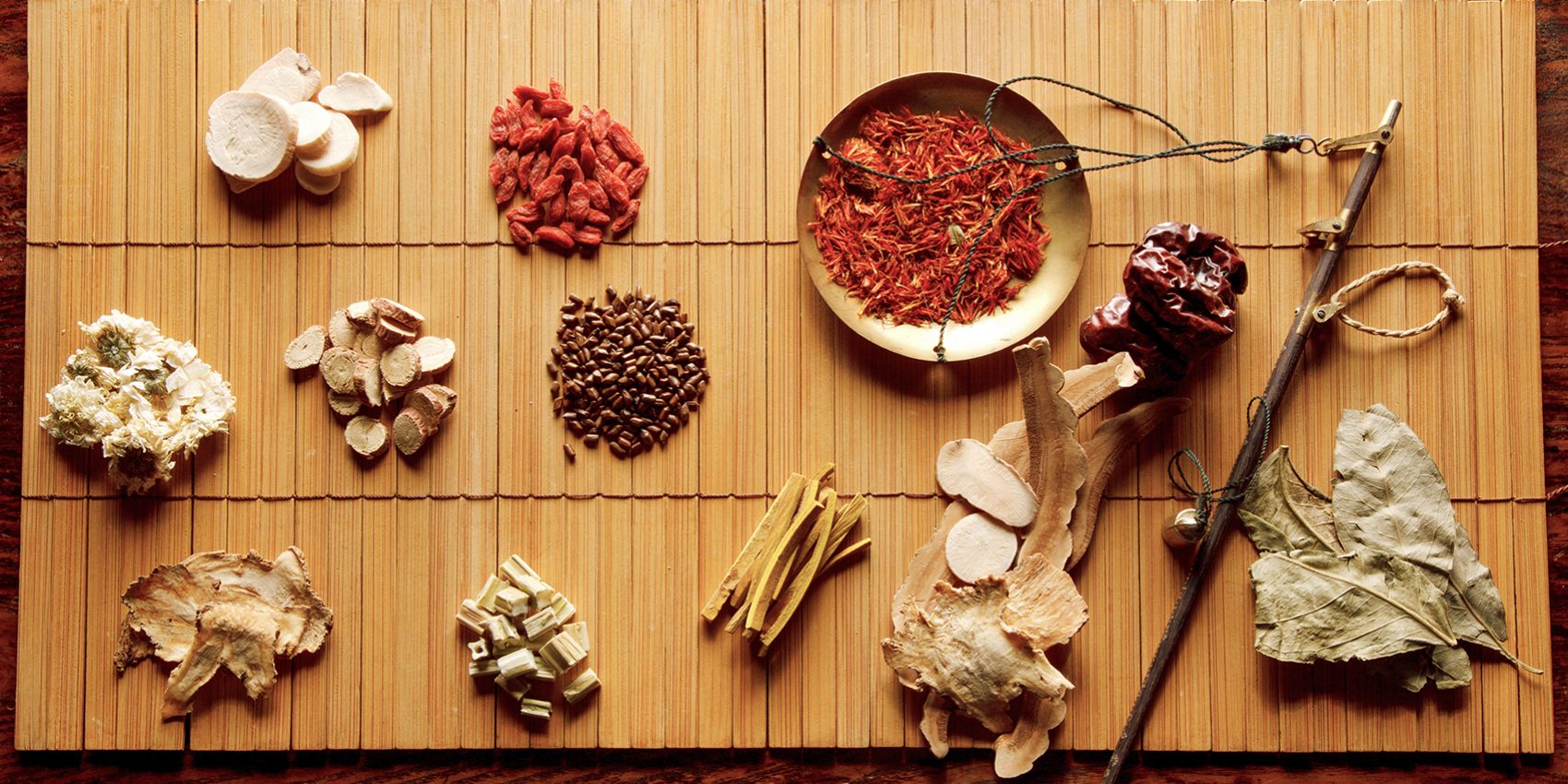The TCM Connection to the Gut-Brain-Liver Axis: A Holistic Approach to Health
Traditional Chinese Medicine (TCM) stands out for its holistic perspective, emphasizing the intricate balance between various organs and systems. Rather than merely addressing symptoms, TCM focuses on strengthening the body’s natural defenses and restoring harmony through specific herbs, dietary adjustments, and practices like Qi Gong, Tai Chi, and acupuncture.
The gut-brain-liver axis is a crucial network linking our digestive, cognitive, and liver functions, playing a vital role in overall health. This connection influences everything from mental clarity to liver detoxification. While modern science is increasingly unveiling the links between gut bacteria, liver health, and brain function, TCM has long recognized the significance of this relationship. With its holistic approach, TCM offers unique insights and treatments that may support the gut-brain-liver axis and foster harmony among these essential systems.
The Gut-Brain Axis: A Vital Link
As Alzheimer's disease (AD) continues to affect over 50 million individuals worldwide, researchers are exploring various therapeutic approaches. One promising avenue is TCM, which has a rich history of utilizing herbs for cognitive health. A recent study conducted by Chinese scientists underscores the importance of the microbiota-gut-brain (MGB) axis in understanding how TCM can influence brain function and combat the effects of neurodegenerative diseases like AD.
The MGB axis represents a complex web of interactions among gut bacteria, the gastrointestinal tract, and the brain. Disturbances in gut microbiota, known as dysbiosis, can lead to inflammation and cognitive decline, potentially triggering or worsening conditions like AD. The gut microbiome, made up of trillions of microorganisms, plays a crucial role in regulating immune responses, metabolic processes, and neurotransmitter production.
TCM offers a multi-faceted approach to modulating this axis, targeting gut microbiota to enhance cognitive function. Its diverse range of herbs aims not only to alleviate symptoms of AD but also to address underlying causes by restoring balance within the microbiome.
The Gut-Liver Axis: A Critical Connection
The trillions of bacteria residing in our intestines aren't just essential for digestion—they significantly impact liver health. Gut bacteria regulate immune responses, reduce inflammation, and influence detoxification processes in the liver. When gut bacteria become imbalanced, it can lead to liver inflammation, metabolic disorders, and even mood disturbances.
Research shows that liver diseases, such as hepatitis and fatty liver, are closely linked to changes in gut microbiota. An overpopulation of harmful bacteria can exacerbate liver conditions by increasing inflammation and oxidative stress, further compromising liver function. Therefore, maintaining a healthy gut microbiome is vital for protecting liver health.
Traditional Chinese Medicine (TCM) plays an important role in restoring this balance. Many TCM herbs, rich in polyphenols, prebiotic fibers, and even probiotics, create a healthier gut environment. By fostering beneficial bacteria and reducing harmful strains, TCM helps maintain harmony in the gut, which in turn supports liver function. Through the synergy of these herbs, TCM provides a holistic approach, enhancing both gut and liver health, and promoting overall well-being..
The Brain-Liver Axis: An Essential Relationship
In TCM, the liver is pivotal not only in detoxification but also in emotional health. While Western medicine often focuses on neurotransmitters and the nervous system to address mental health, TCM regards the liver as central to managing emotional states. According to TCM theory, emotional imbalances—especially stress—are believed to first impact the liver, disrupting its functions and overall well-being, including mental clarity and mood.
A groundbreaking study is beginning to bridge the gap between these two medical perspectives by investigating how liver function influences mental health. This research examined the relationship between liver function in TCM and the Western understanding of the hypothalamic-pituitary-adrenal (HPA) axis, a system critical in the body's stress response. Findings revealed that hormones like cortisol and adrenocorticotropic hormone (ACTH), integral to the HPA axis, were positively correlated with TCM-based liver function in individuals suffering from depression. This suggests that the liver’s health may impact mental states through physiological pathways, supporting TCM’s longstanding belief in the connection between liver function and emotional well-being.
This exciting research highlights the potential of TCM to provide well-rounded solutions for mental health by focusing on the liver's role in managing stress. While more studies are needed—especially to understand how the locus coeruleus-norepinephrine (LC-NE) system, which is a part of the brain that helps control our stress responses, interacts with liver health and mental well-being—this work opens up new possibilities for combining TCM with modern treatments for conditions like depression.
TCM's Holistic Herbs for the Gut-Brain-Liver Axis
TCM has long employed specific herbs to promote balance across the gut-brain-liver axis, offering a natural and effective means to restore harmony among these interconnected systems. Here are some common herbs highlighted in recent studies for supporting gut, brain, and liver health:
Panax Ginseng: This adaptogen helps regulate stress, boost energy, and support the immune system. It enhances mental clarity, reduces emotional stress, and promotes liver detoxification, making it a key herb for achieving harmony across the gut, brain, and liver.
Turmeric: Renowned for its powerful anti-inflammatory and antioxidant properties, turmeric plays a critical role in restoring gut-liver harmony. It aids the liver in detoxification while promoting a healthy balance of gut bacteria, essential for maintaining digestive health and liver function.
Licorice: Licorice root is highly valued for its ability to soothe inflammation and support both gut and liver health. It alleviates digestive discomfort and inflammation while aiding liver detoxification processes, contributing to overall balance in the body.
Cistanche: This herb is known for helping with memory and brain health. It improves cognitive function by reducing inflammation and oxidative stress in the body. Its polysaccharides help restore balance in the microbiota-gut-brain (MGB) axis, alleviating amino acid imbalances and peripheral inflammation. Cistanche also combats aging, supports liver health, enhances stress response, and helps balance gut bacteria by promoting beneficial strains while reducing harmful ones, making it a valuable addition to overall well-being.
Ginger: Often praised for its digestive and anti-inflammatory benefits, ginger supports liver function and promotes gut health. By calming the digestive system and aiding liver detox, ginger helps restore balance along the gut-brain-liver axis.
Noni: With its robust antioxidant properties, noni protects the liver and gut from oxidative stress and inflammation. It promotes a healthy microbiome and supports liver detoxification, enhancing both cognitive function and emotional well-being.
Bupleurum Chinense: This herb is associated with liver health in TCM and is believed to positively influence emotional well-being through its effects on the HPA axis.
Yam: Frequently used in TCM to nourish digestion and support the liver, yam helps balance the gut microbiome and improves nutrient absorption, making it an excellent addition to maintaining the gut-liver connection.
The Road to Holistic Health and Purity
The gut-brain-liver axis is a vital pathway for maintaining overall health, and TCM offers a unique and effective approach to supporting it. By utilizing herbs like Panax ginseng, turmeric, ginger, licorice, noni, cistanche, and yam, TCM helps balance gut bacteria, reduce liver inflammation, and enhance mental clarity. Whether through herbal remedies or dietary practices, embracing TCM's holistic wisdom can nurture the connections among our gut, brain, and liver, leading to a more balanced and healthy life. As we delve deeper into these complex relationships, TCM continues to serve as a valuable resource for fostering harmony across the body’s most essential systems.
In addition to TCM’s holistic health benefits, emphasizing traceability and quality control is crucial. Prioritizing the purity of these remedies is essential, as studies have shown that proprietary Chinese medicines can be adulterated with undeclared substances, posing serious health risks. To address this concern, China has set an ambitious goal to achieve full traceability for key TCM botanicals within five years, ensuring that products are safe and accountable from cultivation to consumer. (Source)
By diligently tracing the origins and transportation of TCM herbs and enforcing stricter manufacturing standards, practitioners and consumers can trust in the integrity of their remedies. This commitment to transparency and quality highlights the growing global demand for safe and reliable botanical products. For more on the importance of purity and traceability, visit Purity and Traceability.
Return to:


